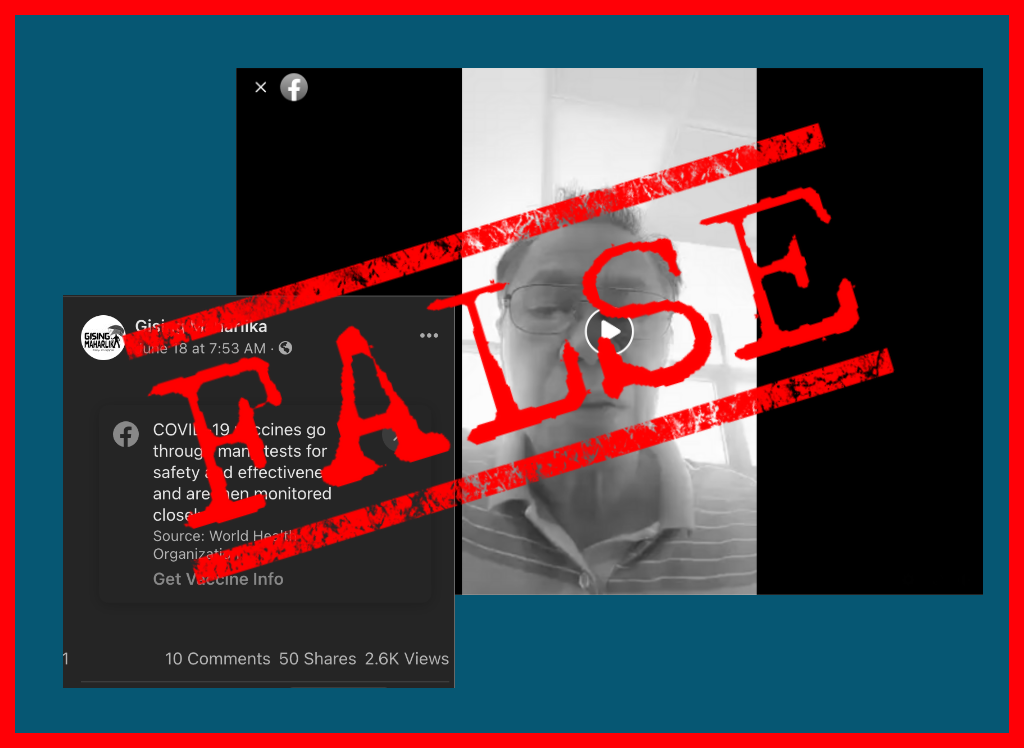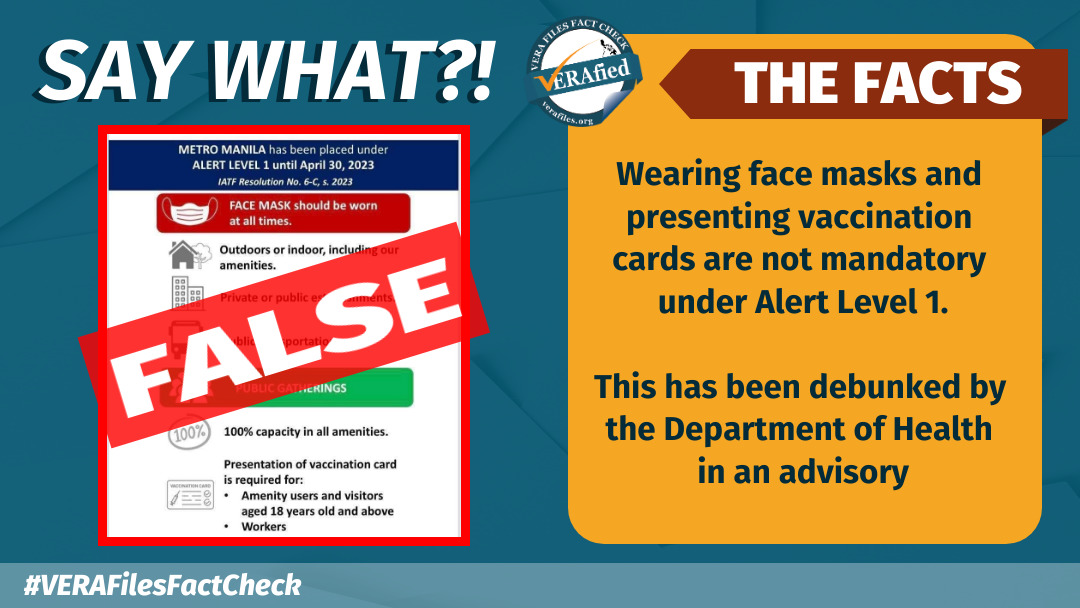After the Department of Health (DOH) reported the Philippines’ first case of Coronavirus Disease (COVID-19) local transmission on March 6, the number of persons infected by the disease has already climbed to 217 as of March 19.
According to the World Health Organization (WHO), this outbreak is also accompanied by massive “infodemic” or an overabundance of information — “some accurate, some not” — that makes it “hard for people to find trustworthy sources and reliable guidance when they need it.”
In a situation report released on Feb. 22, WHO said its technical risk communication and social media teams have been “working closely” to track and respond to myths and rumors about SARS-CoV-2, the virus that causes COVID-19, due to the “high demand for timely and trusty information.” This includes the publication of health information and advice, including “mythbusters,” about the virus on its social media channels and website.
Health Secretary Franciso Duque III in a Jan. 26 ANC interview said the spread of false or unverified information “will do no good” except to cause unnecessary “anxiety and fear” among the people.
Here’s a roundup of some of the myths and misconceptions around COVID-19 VERA Files Fact Check has tracked, and that have been debunked by respectable health organizations both in the country and around the world.
On the nature and source of the novel coronavirus 2019
The novel coronavirus, which is now called SARS-CoV-2, is related to two stronger strains of coronaviruses:
- the Severe Acute Respiratory Syndrome coronavirus (SARS-CoV), which was transmitted from civet cats to humans in China in 2002; and
- the Middle East Respiratory Syndrome Coronavirus (MERS-CoV), which was first identified in dromedary camels to humans in Saudi Arabia in 2012.
(See VERA FILES FACT SHEET: Novel coronavirus: Six things you need to know)
After the 44 cases of pneumonia first reported in December 2019 were traced to a seafood and wildlife market in Wuhan, China, many have speculated about the “etiology” or source of the virus. For instance, a video report falsely claiming that the virus had been “confirmed” to have come from bats went viral on Facebook (FB) early last month. (See VERA FILES FACT CHECK: FB posts saying novel coronavirus is from bats bear FALSE HEADLINE)
Some netizens have also been duped by inaccurate FB posts into believing that a market selling bats, dogs, rats, snakes, cats, and other animals was in Wuhan, China, when it was actually in Indonesia. Many of those who interacted with the untrue post expressed anger and disappointment toward the “Chinese.” (See VERA FILES FACT CHECK: Video of bats, snakes, other animals sold at ‘Wuhan’ wet market NOT TRUE; it’s in Indonesia)
SARS-CoV-2, which causes COVID-19, an acute respiratory disease, has also been likened by President Rodrigo Duterte to the human immunodeficiency virus (HIV) because both viruses supposedly “weaken” the body and “destroy” a person’s white blood cells. (See VERA FILES FACT SHEET: Duterte says the new coronavirus is similar to HIV. Is that so?)
Watch the video below to know the real deal behind the source and nature of SARS-CoV-2.
On the transmission of COVID-19 and how to prevent it
Following the DOH’s announcement of the first COVID-19 case in the country on Jan. 30, Duque advised the public to drink and keep one’s throat “moist” to prevent the virus from “attaching” to it, which contradicts a WHO advisory. (See VERA FILES FACT CHECK: Duque’s statement that ‘moist throat’ can prevent COVID-19 contradicts WHO advisory)
Two days later, netizens and pages in FB spread inaccurate claims that SARS-CoV-2, “like all kinds of coronaviruses,” thrives only in cold weather and cannot survive in a tropical weather, or when the temperature is too high. These untrue posts then recommended drinking hot salabat, or ginger tea, on an empty stomach for three days straight instead of water to kill the virus. (See VERA FILES FACT CHECK: FB posts claiming 2019-nCoV only survives in ‘cold weather,’ salabat a cure NOT TRUE)
In an effort to also inform the public how to protect oneself against COVID-19, Manila Vice Mayor Honey Lacuna mistakenly said there were “two ways” in wearing surgical masks. (See VERA FILES FACT CHECK: Manila Vice Mayor Lacuna demos wrong way to wear surgical masks, calls it the ‘proper’ way)
Watch this video to know what you can do to avoid catching the virus:
VERA FILES FACT CHECK: Myths debunked on COVID-19 prevention from VERA Files on Vimeo.
Being informed and closely following guidelines of health authorities go a long way in fighting COVID-19 and its ugly twin, misinformation.





